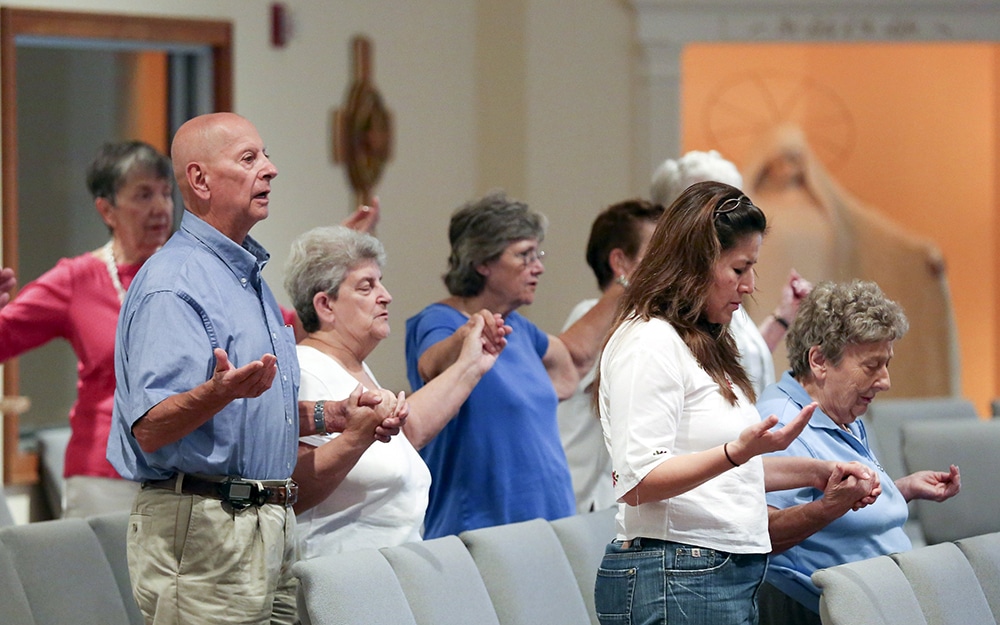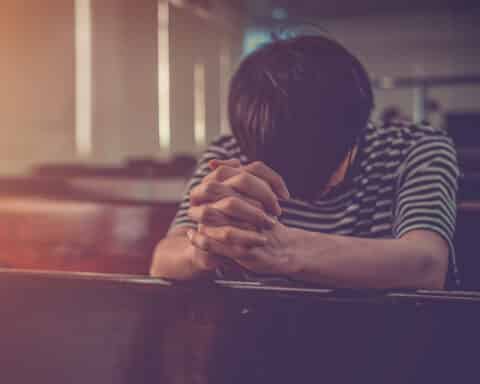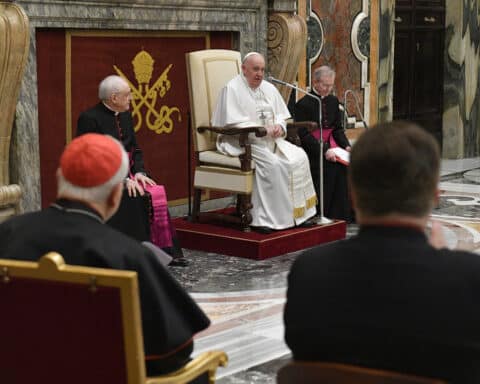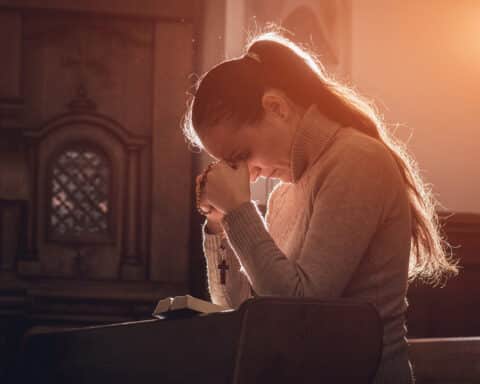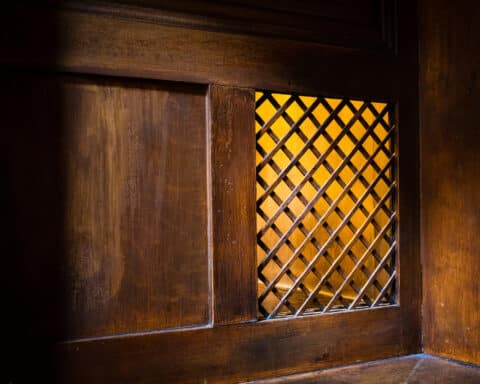Question: Why do Catholics hold hands in Mass during the Our Father? Is it a sign of unity? If so, it seems more appropriate to join hands in the Creed.
— Name, location withheld
Answer: Holding hands during the Our Father seems to have emerged from Alcoholics Anonymous meetings, where it remains a common practice today. That’s why it was associated with the Our Father rather than the Creed, or intercessory prayers, etc. While it is not forbidden in the norms for liturgy, it is inappropriate for a couple of reasons.
In the first place, it is imposing on other people who may be uncomfortable with the practice. To some, holding hands signifies an intimacy that they do not want to share with strangers. Others worry about germs on the hands of others. So there is a kind of boundary violation when whole communities hold hands during the Our Father. It is one thing for spouses or families to hold hands on their own initiative, but communal custom and insistence that everyone join hands creates a pressure to do so that is inappropriate.
It is also problematic insofar as it introduces a practice in the Mass that is not indicated in the norms. As such it is disruptive to the liturgy. In effect it becomes a rather acrobatic gesture that involves reaching across aisles and backward toward people in the pew behind, etc.
Again, holding hands during the Our Father is not forbidden, since the norms are silent about the people’s posture at the Our Father, other than that they stand. The priest alone is required to extend his hands during the prayer. But silence does not mean that anything is allowable, and given that some people find this intrusive and that it does tend to introduce a disruption in the liturgy, it seems an unwise practice and surely something that no priest should actively instruct the congregation to do.
Confession
Question: Whenever we go to confession as a family, we encourage our 4-year-old son to go into the confessional (face to face) to receive a blessing from the priest. The last time we did this, the priest was a little confused about what was going on and shooed out my wife, who stood at the door, watching. He asked my son to tell him his sins, which he did, and to say the act of contrition, which he obviously could not do. Despite that, he gave my son absolution. So did my 4-year-old already technically have his first confession?
— Name, location withheld
Answer: A 4-year-old should not be sent into the confessional for a blessing. This is not the purpose of a confessional, which exists for hearing confessions and granting absolution. Family customs, even if well intended, should not intrude on the nature and purpose of the confessional. It is understandable that the priest was confused in this situation, not knowing that a mere blessing was being sought, and thus he told the parent to leave. Parents should not be in the confessional for a child’s confession. Further, since priests do not raise children, they are less skilled in knowing the age of a child. A 4-year-old and a 7-year-old may not look all that different to a priest. Hence the priest acted in good faith, and according to the norms of the Church in presuming the child sought a confession and proceeding as he did.
As for your second question it would seem that this was in fact your son’s first confession. Whether he was in need of absolution at age 4 is doubtful, but presuming the child mentioned real sins and the priest gave a valid absolution, the sacrament was, in fact, conferred. That said, it remains important for you to refrain at this point from sending him again until catechesis is completed and the usual age of 7 is reached.
Ministers of holy Communion
Question: If you know someone who volunteers as an extraordinary minister of holy Communion but does not go to Mass regularly, what should you do?
— Name, location withheld
Answer: The pastor should certainly be informed of this. To serve as an extraordinary minister of holy Communion, one must be a practicing Catholic, distinguished in their Christian life, faith and morals. They should also be at least 18 years old, have received the sacraments of baptism, confirmation and Eucharist, demonstrate a deep reverence for and devotion to the holy Eucharist and possess the requisite abilities and temperament to carry out their assigned duties. Clearly, missing Mass regularly excludes one from serving as an extraordinary minister of holy Communion.
Msgr. Charles Pope is the pastor of Holy Comforter-St. Cyprian in Washington, D.C., and writes for the Archdiocese of Washington, D.C. at blog.adw.org. Send questions to msgrpope@osv.com.

